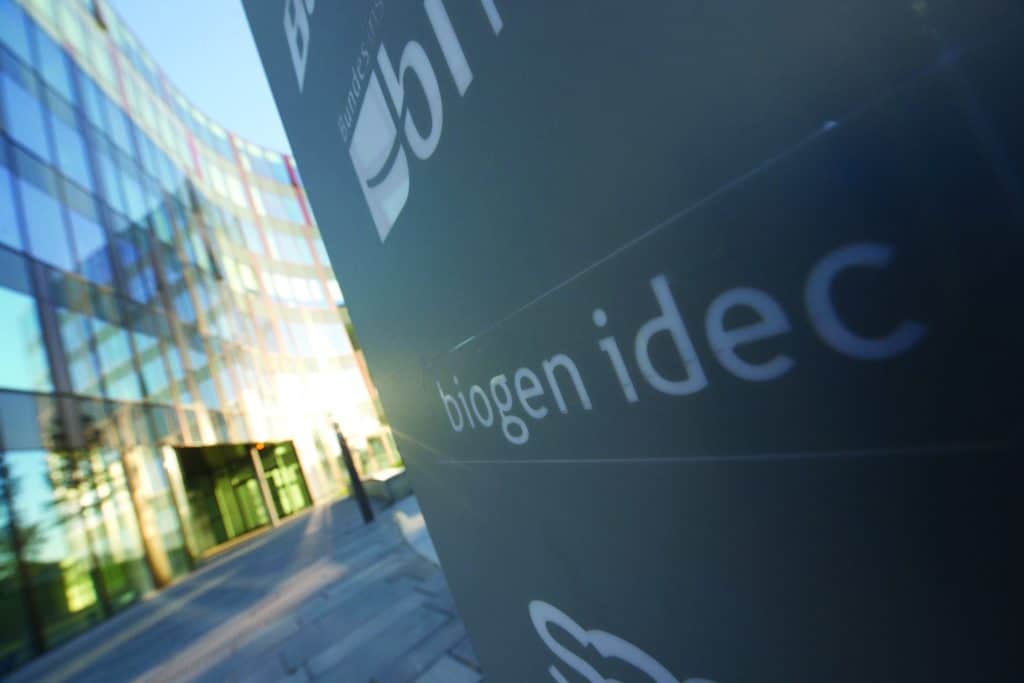
Alzheimer’s tie-up for Eisai and Biogen
pharmafile | March 6, 2014 | News story | Research and Development, Sales and Marketing | Alzheimer's, BAN2401, Biogen IDEC, E2609, Eisai
Eisai and Biogen Idec have joined forces to look for new Alzheimer’s treatments, developing and commercialising two of the Japanese firm’s clinical candidates for the disease, E2609 and BAN2401.
In turn, Eisai also has an option on a pair of Biogen’s Alzheimer’s candidates, the anti-amyloid beta (Aβ) antibody BIIB037 and an anti-tau monoclonal antibody.
However, the collaboration will focus at the start on E2609, a β-site amyloid precursor protein cleaving enzyme (BACE) inhibitor, and BAN2401, an anti-Aβ antibody.
The companies are keeping their financial cards close to their chests, saying only that Biogen “will provide Eisai with an upfront payment and a fixed amount of development, approval and commercial milestone payments”.
There is also an option for Eisai to receive an additional one-off payment from its US partner, relating to joint development and commercialisation activities in Japan.
Eisai will lead on E2609 and BAN2401, and in major markets such as the US and Europe the countries will co-promote the products should they be authorised. Both companies will share costs, including R&D, with profits to be split between them.
There is currently no cure to Alzheimer’s which is increasingly the object of pharma’s attention, since greater incidence of the disease in an ageing global population means the rewards for a successful treatment would be considerable.
Over the past 15 years more than 100 experimental Alzheimer’s drugs have failed in tests, but pharma industry analysts believe that a truly effective drug could be worth around $10 billion in peak annual sales.
There are two main theories on the causes of Alzheimer’s: the first is that the tau protein forms in the brain and create ‘tangles’, while the second is that the amyloid protein creates a build-up of plaques in the brain.
Eisai’s drugs have the potential to reduce the Aβ plaques and stop new ones forming, a mechanism which could improve symptoms and suppress disease progression.
While this is the route pharma has been going down in the main, compounds looking at the tau protein have become more prominent given recent amyloid drug failures over the past 18 months.
“Eisai’s candidates have demonstrated compelling early data and complement our Alzheimer’s disease research while extending our pipeline in this critical area,” said George Scangos, chief executive of Biogen.
E2609 is about to enter Phase II while BAN2401, discovered by Eisai and BioArctic Neuroscience, is already at that stage and is believed to selectively bind to, neutralize and eliminate soluble, toxic Aβ aggregates that are thought to contribute to the neurodegenerative process.
Biogen’s BIIB037 is an anti-Aβ human monoclonal antibody under license from Neurimmune, which is currently in a Phase Ib trial and is designed to bind to and eliminate amyloid plaques.
In January private Swiss biotech AC Immune launched the world’s first trial of an Alzheimer’s vaccine, ACI-35, which is designed to stimulate the body’s immune system to produce antibodies which target the tau protein.
And last month, under a five-year collaboration co-ordinated by the US government’s National Institutes of Health, pharma companies including GlaxoSmithKline, Merck and Pfizer agreed to invest $230 million to help identify new biological targets of the disease.
Adam Hill
Related Content

Lilly’s drug for early Alzheimer’s shows promising results
Eli Lilly (Lilly) has announced positive new data from the long-term extension of its phase …
Eisai presents latest findings for lecanemab at Alzheimer’s Association International Conference (AAIC)
Clarity AD open-label extension (OLE) data show: three years of continuous lecanemab treatment reduced clinical …

Eisai and EcoNaviSta enter dementia collaboration
Eisai and EcoNaviSta have announced that they have entered into a business alliance agreement, initiating …






